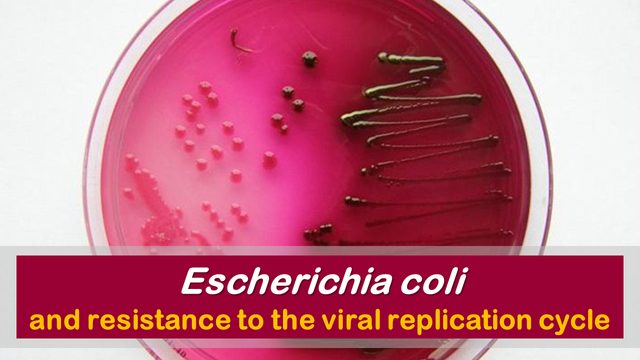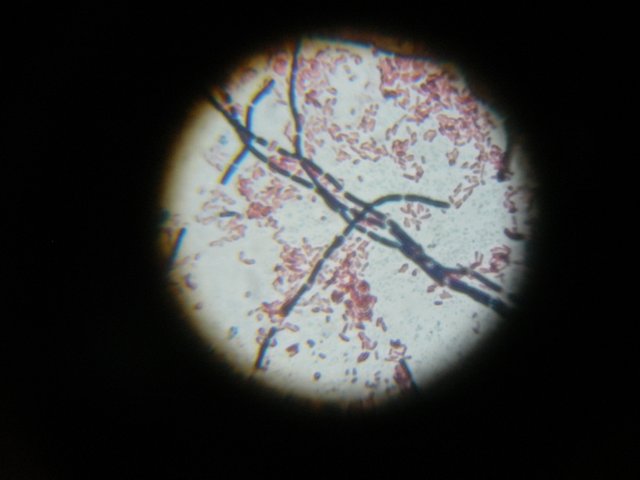
In the light of modern science, leading researchers from different countries, at a relatively advanced stage, are beginning to reveal scientific possibilities of a genetic nature previously obtained in the laboratory, namely how to rewrite the genome of microorganisms to generate life immune to viruses.
Although naturally, there are no conditions genetically immune to viral infections, science in these months of pandemic has been working on producing proteins from microorganisms resistant to any viral attack, it may sound improbable, but the truth is that a group of scientists from the UK have created the first virus-resistant life form.

Fig. 2 Escherichia coli strains, in the image small pink clusters are observed in the background.. Public domain image, Author: Bibliomaniac, 2009
Synthesis of composite proteins
In the study developed by researchers from the United Kingdom, through in vitro fact-checking, it has been possible to demonstrate that it is possible to rewrite the genome of bacteria to produce proteins that do not exist in nature, and that these in turn produce favorable and genetically immune responses to viral infections.
In this regard, scientists have succeeded in genetically manipulating biological strains of the bacterium Escherichia coli, whose genome has been literally rewritten to include changes that did not exist in nature until now, and thus were able to create a synthetic molecule capable of counteracting viral replication cycles.
Counteracting the viral replication circle has been the objective of the pharmacological sector in all these months of pandemic, however, such an undertaking has been constantly truncated, hence, these results of having created a synthetic substance from Escherichia coli with immune reaction to viral infections, are undoubtedly the greatest advances in the search to curb the replication of the coronavirus on a global scale.

Fig. 3 Cross section of an Escherichia coli cell with poorly defined nucleoid level genome. Public domain image, Author: David S. Goodsell, 2021
CONTRIBUTIONS OF THIS PUBLICATION
- Specifically, according to the results obtained, it is inferred that the changes made to the genome of bacterial strains of Escherichia coli, create conditions that act as a firewall against viruses, since they disable the functioning of several codons that viruses need to affect cell metabolism.
BIBLIOGRAPHICAL REFERENCES CONSULTED:
[1] Wesley R., Funke L., Torre D., Fredens J., Elliott T Sense codon reassignment enables viral resistance and encoded polymer synthesis. DOI: 10.1126/science.abg3029. Article: Online Access
[2] Liao Y., Lescar J., Tam J., Liu D Expression of SARS-coronavirus envelope protein in Escherichia coli cells alters membrane permeability. Article: Online Access
OBSERVATION
